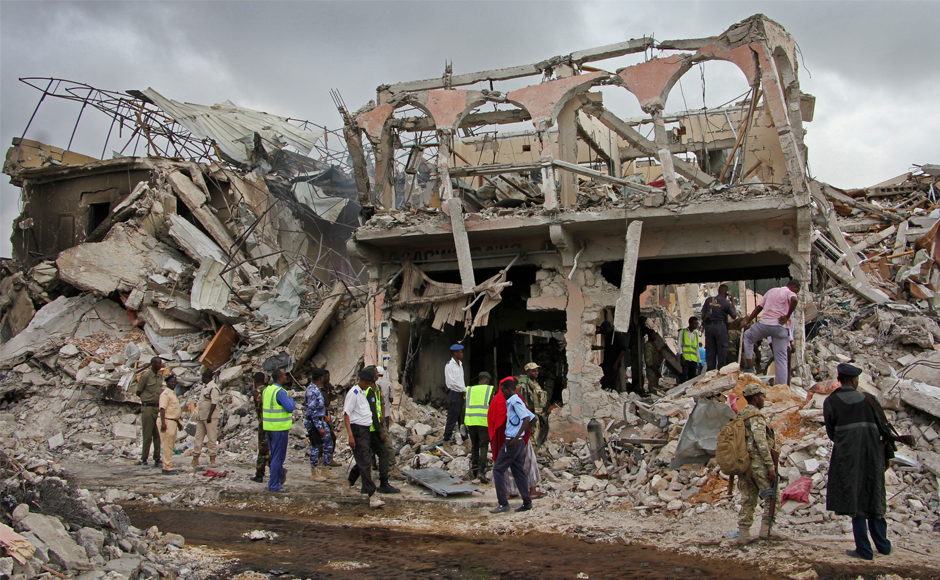Medics who rushed to help victims of a huge bomb explosion in the Somali capital Mogadishu that killed more than 300 people say the country’s threadbare emergency services have been pushed beyond their limit.
From a lack of ambulance drivers to break-downs of the ambulances themselves, to checkpoints blocking routes to hospitals to a shortage of blood, the chaotic response to the deadliest truck bombing in Somalia’s history cost additional lives, they said.
Officials say that Saturday’s bombing, which also wounded at least 400 people, bore the hallmarks of the al Qaeda-linked al Shabaab, but the group has not claimed responsibility.
More than three days after the bombing at a busy intersection in the capital, hundreds of people were still searching for relatives in hospitals and trying to access the blast site, Reuters witnesses said.
Dr Abdikadir Abdirahman, director of Aamin Ambulances, a privately-funded ambulance service responding to the attack, described the limitations of his country’s emergency system.
”We have old ambulances and after working 24 hours for days, three broke down. The telephones got jammed and we had no
walkie talkies.”
He said road blocks manned by the security forces delayed ambulances, and there were not enough medics to respond to the devastating attack.
